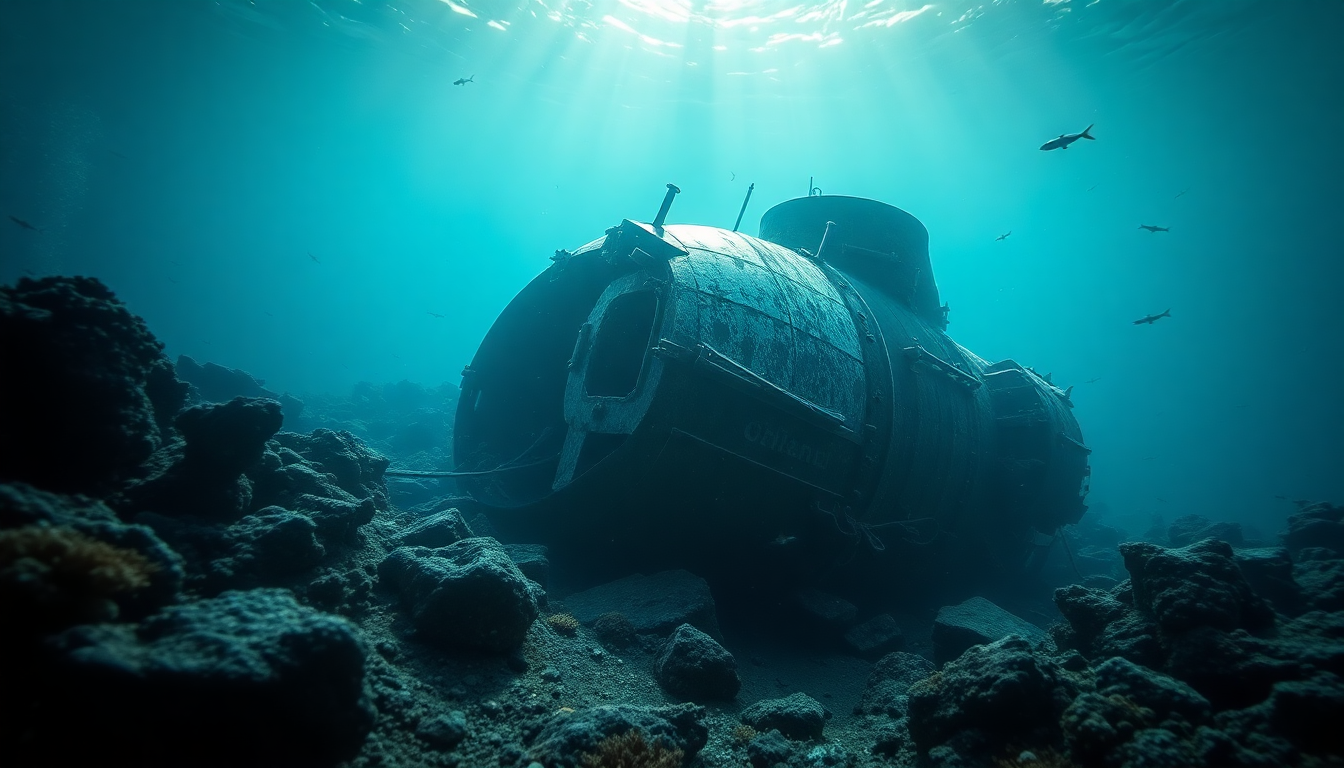Table of Contents
The tragic implosion of the Titan submersible on June 18, 2023, during its ill-fated journey to the Titanic wreck site, has raised serious concerns about safety and regulatory oversight in the world of deep-sea exploration. The United States Coast Guard’s Marine Board of Investigation has deemed this incident a preventable tragedy, attributing the primary cause to the submersible’s flawed design.
Let’s dive deeper into the investigation’s findings and what they mean for the burgeoning industry of underwater exploration.
What Did the Investigation Uncover?
The report from the Coast Guard’s Marine Board of Investigation, released on a recent Tuesday, reveals several critical failures within OceanGate, the company behind the Titan.
At the core of these findings is the assertion that the design of the Titan was fundamentally flawed. Investigators pointed out alarming gaps between OceanGate’s established safety protocols and how they were actually implemented, which ultimately led to a catastrophic failure and the tragic loss of five lives.
But that’s not all. The report stresses that safety procedures at OceanGate were alarmingly inadequate. Investigators examined the design, certification, maintenance, and inspection processes of the Titan, concluding that all these areas fell short. The implications of these findings extend far beyond just one company; they raise serious questions about the regulatory frameworks that govern deep-sea expeditions as a whole.
Isn’t it unsettling to think that a lack of oversight could lead to such dire consequences?
Moreover, the investigation uncovered a troubling workplace culture within OceanGate, described as toxic by several former employees. This environment reportedly undermined the company’s ability to follow safety protocols effectively, emphasizing the urgent need for stronger oversight in the industry.
How can a company prioritize safety when its internal culture is compromised?
The Wider Implications for Deep-Sea Exploration
The Titan tragedy has sparked a national conversation about regulating private deep-sea exploration. Jason Neubauer, a key member of the Marine Board of Investigation, believes that the findings could help prevent similar disasters in the future.
He stressed the importance of regulatory oversight, calling for clearer guidelines for operators who venture into uncharted waters where existing frameworks may not even apply. Are we ready to take the necessary steps to ensure safer exploration?
In the aftermath of this incident, calls for stricter regulations have intensified, especially concerning the growing private sector of deep-sea expeditions. The absence of a comprehensive regulatory framework has been identified as a significant oversight that contributed to the Titan’s operational failures. As this industry continues to expand, establishing robust guidelines to protect both operators and passengers is essential. After all, who wouldn’t want to feel safe while exploring the mysteries of the deep?
Additionally, the report indicates that OceanGate had previously avoided regulatory scrutiny by leveraging its reputation and intimidating employees who raised safety concerns. This revelation highlights the urgent need for accountability and transparency in the industry, ensuring that safety remains a top priority in deep-sea explorations. Isn’t it time we put safety first?
Looking Ahead: Shaping the Future of Submersible Operations
As the investigation’s findings continue to resonate throughout the industry, the focus now shifts to future practices and regulations. The Titan tragedy has served as a wake-up call, urging all stakeholders to prioritize safety and regulatory compliance in deep-sea exploration. The potential for groundbreaking discoveries should never overshadow the necessity for stringent safety measures.
In conclusion, the Titan submersible accident serves as a stark reminder of the risks involved in deep-sea expeditions. The investigation’s findings not only reveal critical shortcomings within OceanGate but also signal a broader demand for improved oversight and regulatory frameworks across the industry. As we move forward, it’s crucial that the lessons learned from this tragedy shape the future of submersible operations, ensuring safety remains at the forefront of exploration efforts. After all, isn’t our safety worth it?





